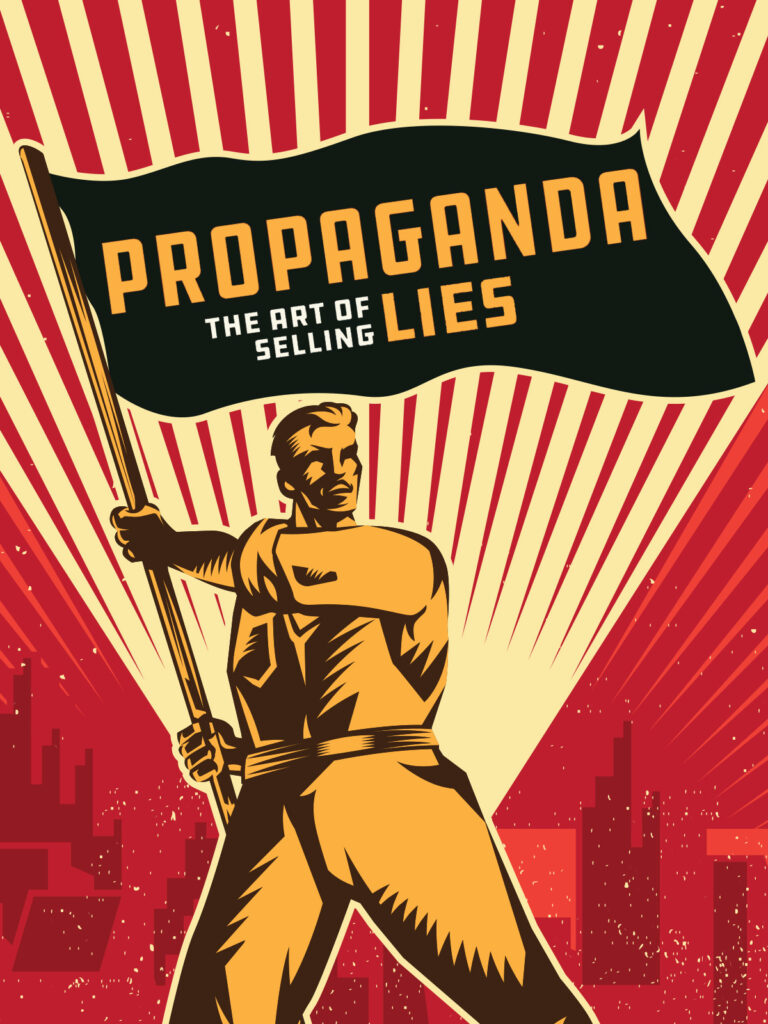Fair question. If you don’t care about critical thinking, Stoicism, or calling out the hot mess that is the current state of government, economics, and geopolitics, this blog probably isn’t for you. But hey, if you’re here for a few laughs—whether through biting satire or over-the-top parody—stick around. After all, I’m what you’d call a spin doctor who grew a conscience. A rare breed, I know.
Let’s be clear: I’m not here to convince you of anything. I’m here to speak my mind, challenge yours, and maybe help unpack the tangled web of bullshit we deal with daily. If that sounds like your cup of tea, welcome to the madness.
So, who am I? My name’s Josh, and I host a stream and podcast called The Lincoln Brigade.
THIS WEEK’S BRAIN STRAIN: LOGICAL FALLACIES
Let’s talk about brainwashing. No, not the tinfoil-hat kind (though we’ll get weird eventually), but the subtle, everyday manipulation you’re likely soaking in without even realizing it. Did you know it’s illegal for the government to use black propaganda on its own citizens? Fun fact: It’s not illegal for people vying for government positions to use it on you. Wild, right?
Today, we’re dissecting logical fallacies—the bread and butter of propaganda. We’ll break down their flavors, show you how they’re used to steer the masses, and explore how authoritarian regimes test their efficiency. Let’s start with the basics.
The Usual Suspects: Types of Logical Fallacies
- Emotional Appeal (Fear or Pity):
These fallacies skip logic and go straight for your feels—fear, pity, or whatever tugs at your heartstrings. It’s like saying, “Look how sad this kitten is; you HAVE to agree with me!” No facts, just drama. - False Dilemma (All-or-Nothing Choices):
Oversimplifies a complex issue into two extremes. You’re either with us or against us—no middle ground. - Hasty Generalization (Speedy Conclusions):
Draws broad conclusions from limited evidence. - Straw Man (Rewriting the Opposition):
Misrepresents the other side’s argument into something ridiculous so it’s easier to knock down. - Bandwagon (Everyone’s Doing It):
Appeals to your herd instinct. If everyone else believes it, it must be true! - Appeal to Authority (Borrowed Credibility):
Relies on an influential figure rather than facts. - Ad Hominem (Attacking the Person):
Ignores the argument and goes straight for personal attacks.
Example: “She has an annoying laugh.” - Us vs. Them (Tribal Showdown):
Creates division, painting one side as the good guys and the other as the enemy.
Why Propaganda Works
Logical fallacies thrive because they exploit our emotions, cognitive biases, and mental shortcuts. Here’s how:
- Emotive Pull: They hit you where it hurts—fear, anger, or pity. The stronger the emotional reaction, the less likely you are to fact-check.
- Simplified Complexity: They boil nuanced issues down to bite-sized, black-and-white conclusions. Easy to digest, hard to question.
- Authority Exploitation: A shiny title or a familiar name doesn’t equal truth, but propaganda loves to make it seem that way.
- Tribal Instincts: “Us vs. Them” rhetoric creates loyalty and shuts down nuanced discussion.
It’s insidious. But don’t worry—there are antidotes to this psychological poison.
Mind Control? Nah, Mind Mastery
Here’s how to keep your brain clean and your will your own:
- Travel Beyond Your Usual Sources:
Step outside your echo chamber. Explore new perspectives. - Ask “Why?” (More Than Once):
Keep questioning until you hit the raw truth. - Play Detective with Evidence:
If something smells fishy, investigate. Sherlock Holmes that shit. - Recognize Emotional Hooks:
Strong feelings? Pause. It might be bait. - Adopt a Devil’s Advocate Mindset:
Argue against your own beliefs for mental agility. - Embrace Nuance and Grey Areas:
Life isn’t black and white, and neither is the truth. - Stay Curious, Stay Open:
The moment you think you’ve got it all figured out, you’ve lost.
Testing the Waters: How They Measure Their Control
Authoritarian regimes don’t just toss out lies for fun—they’re testing you. The more ridiculous the claim they can make you believe, the tighter their grip. Think of it as a twisted trust fall: if you’ll nod along to “They’re eating the cats and dogs!” what won’t you believe?
Wrapping It Up
In the end, no one can truly control your mind—only influence it. But influence can be just as dangerous if you don’t guard your critical thinking. The good news? You’re already on the right track by questioning, learning, and refusing to settle for easy answers. Stay sharp, stay skeptical, and above all, stay woke.
Recommended Watch:
This week’s recommended watch is Propaganda: The Art of Selling Lies, on PBS Documentaries. I highly suggest subscribing if you can afford it. It’s one of the last beacons of objective discussion.

Recommended Listen:
Next Edition:
We’ll dive into Red Flag Events and why Stoicism isn’t just a good idea—it’s a survival skill.




